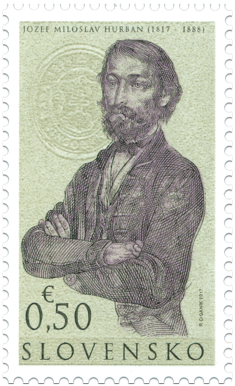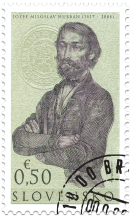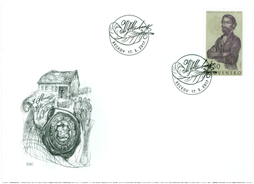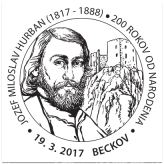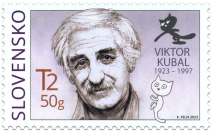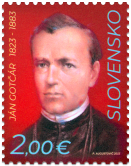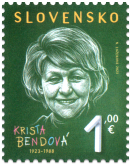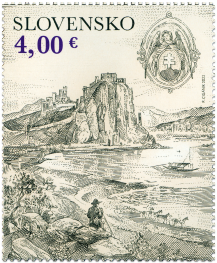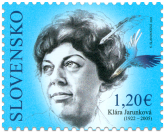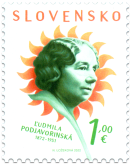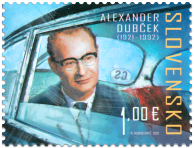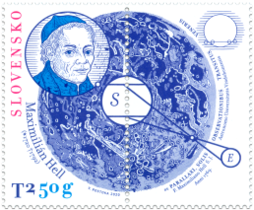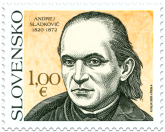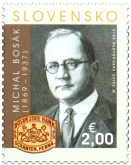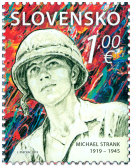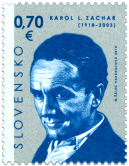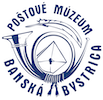631 Date of issue
17.03.2017 Face value
0.50 € Sell price
0.50 €
Jozef Miloslav Hurban (19 March 1817, Beckov – 21 February 1888, Hlboké) was a Slovak nationalist, Evangelist priest, politician, journalist, literary critic and writer. Born into a family of an Evangelist priest, he first attended a local primary school, followed by one in the town of Trenčín. Later he studied at the Evangelical Lyceum in Bratislava (1830 – 1840), where, under the influence of Ľudovít Štúr, the founder of modern Slovak national ideology, he took an active part in the life of the Slovak nation. He was ordained in 1840 and worked as a priest in Hlboké from 1843. A distinguished organiser, writer, journalist, and a sharp critic of the social order, he was a firm opponent of the feudal social order and he strongly disapproved of the policy of Hungarization championed by the ruling classes of the Hungarian Kingdom.
Hurban entered public and literary life in 1835. He participated in the memorable walk by students of the Bratislava Evangelical Lyceum to Devín Castle in 1836, where they vowed to fight for the rights of the Slovak nation and renew its ancient glory (referring to the times of Great Moravia). At the gathering he took “Miloslav” as his second name. In the struggle for the Slovak national identity he was a promoter of Slovak national individuality. It was at his parish, in 1843, that a new form of standardised Slovak language was accepted (the “Štúr Slovak”) and approved by all Slovak ideological streams. He also published the first book ever written in this language (Nitra Almanac). He was a co-founder of Tatrín, the first all-national cultural and scientific association (1844). In 1848 – 1849 he participated in revolutionary activities and was one of the principal forces behind the document called “Requests of the Slovak Nation” from 10th May 1848, which was to become a fundamental programme document of the Slovak Revolutionary Movement. In September 1848 he co-organised the foundation of the Slovak National Council, the Slovaks’ highest revolutionary authority, whose goal was to achieve equality for the Slovak nation in the Habsburg Empire. He became its first chairman and a leader of the Slovak uprising against the Hungarian government. Following the defeat of the revolution he was put under police supervision and silenced for a number of years. He became active again after 1860, but by then the leading roles in the life of the nation had been assumed by the younger generation.
In 1846 he founded the magazine Slovenské pohľady (Slovak Perspectives), a periodical that comes out to this day, which makes it the oldest continuously published literary magazine in Europe. His most important literary work is the biographical portrait Ľudovít Štúr (1859).
The stamp was designed by Rudolf Cigánik, using a stylisation of an 1849 lithograph by E. Kaiser. The FDC gathers together the most important moments from the life of J. M. Hurban, on which is superimposed the seal of the first Slovak National Council.
Anton Hrnko
© 2024 POFIS - Postal philatelic service. All rights reserved

